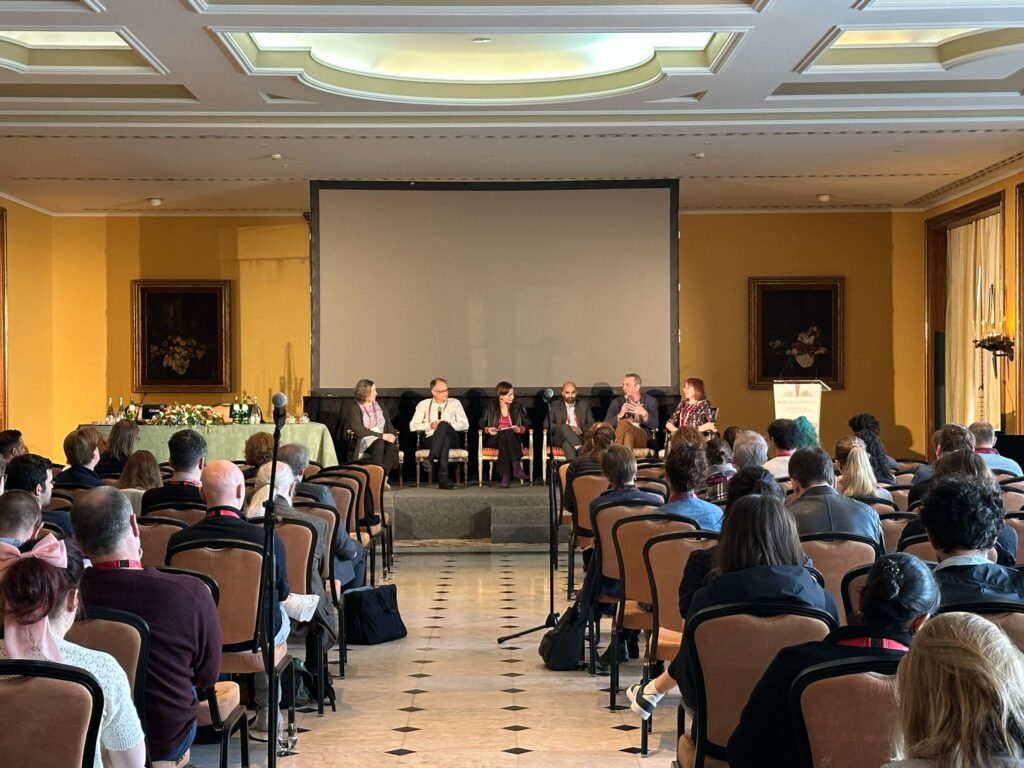
ELF recently attended the European Respiratory Society Lung Science Conference in Estoril, Portugal, to discuss why patient involvement is important in research.
The European Respiratory Society (ERS) Lung Science Conference took place from 20-23 March in Estoril. This marked the 23rd edition of the event, which brings together leading experts to showcase the latest research and how this can benefit patients in the clinic.
ELF represented the patients’ perspective in a presentation, followed by a panel discussion on the value of patient involvement in research. Liam Galvin, Chair of the ELF Patient Advisory Committee (PAC), was joined by Clare Williams, Patient Involvement and Engagement Coordinator, as they highlighted the benefits this can have for the patient community. This message was amplified in video testimonies shared by ELF Patient Advisory Group (PAG) members, Filippo Martone and Pieter van Eck. You can listen to their stories here.
“Patient input is always important in making sure research goes in the right direction. This is important so that we can help the researchers help us.” – Pieter van Eck, ELF COPD PAG
Patient involvement in research is limited. The early stages of research do not usually include people with lived experiences and instead animal cells are often used to test new treatments. The panel discussed several advantages of involving patients and patient organisations more often, including:
“I was pleased to learn from the room that many have already opened their labs to patients and patient organisations for visits. Some had allowed patients to carry out procedures and learn about research in their specific disease areas. Scientists noted the impact of these visits and how patients have made a positive difference to their work.” – Liam Galvin, PAC Chair
The points made by ELF were well-received by the audience and many were eager to learn how they could engage patients more effectively in their work. There are some key points for experts to consider when involving patients in their research, such as:
The Lung Science Conference was a valuable opportunity to showcase the value of patient input. ELF highlighted that whilst the role of patients in the early stages of research might be limited, their involvement is still important. Researchers welcomed the discussions and were pleased to see that patients are eager to contribute to science.
“It is essential to have patients involved where medical planning and research takes place to ultimately improve treatments and quality of life for people with lung conditions.” – Fillipo Martone, ELF Sarcoidosis PAG